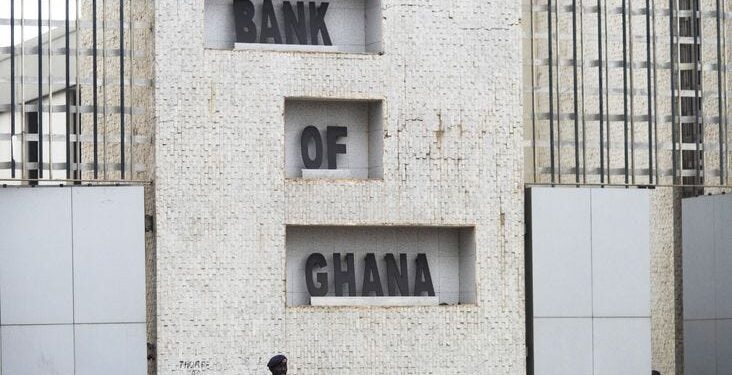The Bank of Ghana has announced a reduction in its benchmark interest rate, lowering it by 350 basis points to 18%, the third consecutive cut, as inflation continues its rapid decline and economic conditions improve.
Governor of the Bank of Ghana, Johnson Asiama, speaking in Accra on Wednesday, said the Monetary Policy Committee (MPC) voted overwhelmingly in favour of easing rates, citing stronger real interest rate conditions and confidence in the country’s inflation outlook.
“The prevailing high real interest rates provided some scope to ease monetary policy to further boost the growth recovery efforts,” the governor said
“The bank projects a continued stable inflation profile around the target and well into the first half of 2026,” he added.
Inflation Falls Dramatically
Ghana’s inflation story marks one of the fastest reversals on the continent. After peaking at over 54% in December 2022, its highest in two decades, inflation fell back into the Bank of Ghana’s target range of 6–10% by September this year. It continued to decline further in October, reaching a more-than-four-year low of 8%.
The sharp disinflation has been supported by Ghana’s improved fiscal position and a surge in global gold prices.
As Africa’s largest gold producer, Ghana has benefited significantly from the commodity rally, helping the cedi appreciate by about 30% against the U.S. dollar this year. The stronger currency has further eased import costs and dampened inflationary pressure.
Finance Minister Cassiel Ato Forson, in his recent budget presentation, reaffirmed the government’s commitment to fiscal consolidation as the country prepares to exit its International Monetary Fund (IMF) programme.
He projected a primary budget surplus of 1.5% of GDP by 2026, with Ghana’s overall fiscal deficit expected to narrow from a projected 2.8% in 2025 to 2.2% in 2026. The government also forecasts economic growth of at least 4.8% in 2026, up from an estimated 4% this year.
















